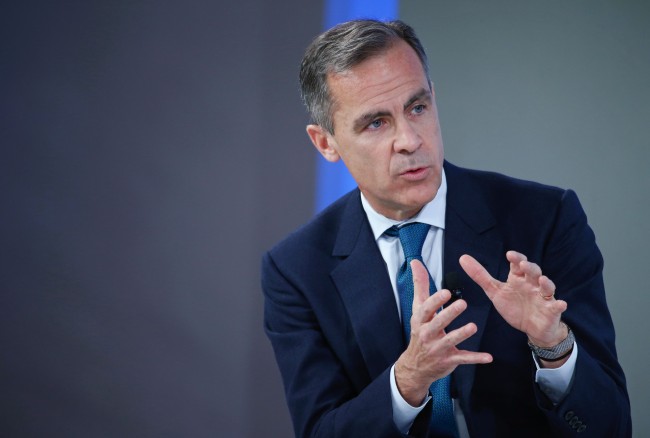The governor of the Bank of England told the Treasury select committee that the EU referendum posed a threat because of Britain’s dependence on foreign money to fund its shortfall in trade and investment income.
City economists have warned that overseas investors could pull back before the referendum if they fear that the UK might leave the union. Capital flight would cause the currency to fall and make borrowing more expensive.
Gilt auctions this year have not gone well, with demand for one offer last week near a seven-year low in a sign that foreign investors may be growing nervous. Sir Robert Stheeman, chief executive of the government’s Debt Management Office, said on Monday that he could not rule out a failed auction “at some point”.
Asked about the current account deficit in the context of the referendum, Mr Carney said: “The global general environment has become much more febrile, much more volatile, and relying on the kindness of strangers is not optimal in that kind of environment, and that’s what is the case when you’re running a 4 to 4.5 per cent [of GDP] current account deficit.”
Addressing the possibility that government borrowing costs would increase, lifting mortgage and commercial loan rates as well, the governor said: “The possibility of a risk premia being attached to UK assets, because of certain developments, exists and that plays into the riskiness of the situation.”
The current account deficit fell to a record low of 6.2 per cent at the end of 2014, but had recovered to 3.7 per cent by last September. Mr Carney said that signs of growth in the eurozone could help it further, by boosting British exports and improving the return on UK investments overseas. However, he emphasised that the deficit remained high by historical standards and continued to be a risk.
This week economists at Credit Suisse said: “A vote to leave the EU could be the catalytic event that turns the UK’s current account deficit from something to worry about to a problem.” They estimate that a vote to leave the EU would cause the pound to fall against the dollar to $1.20 from about $1.43.
The Bank has been keen to steer clear of overt political interference in the Brexit debate, but the governor’s observations may prove influential. Mr Carney also confirmed that the Bank had prepared plans if Britain opted to leave the EU, but said that they would be revealed only after a vote for Brexit.


